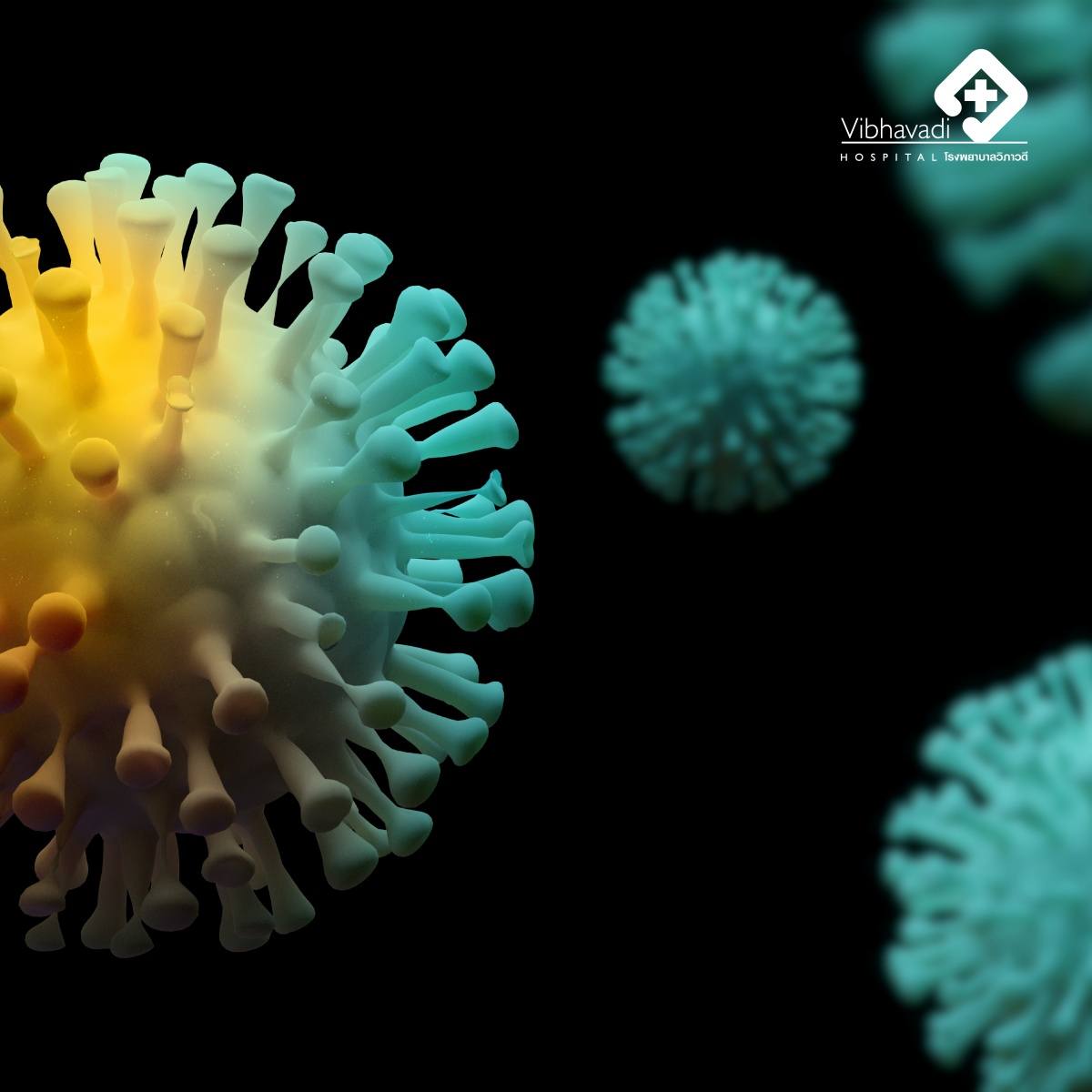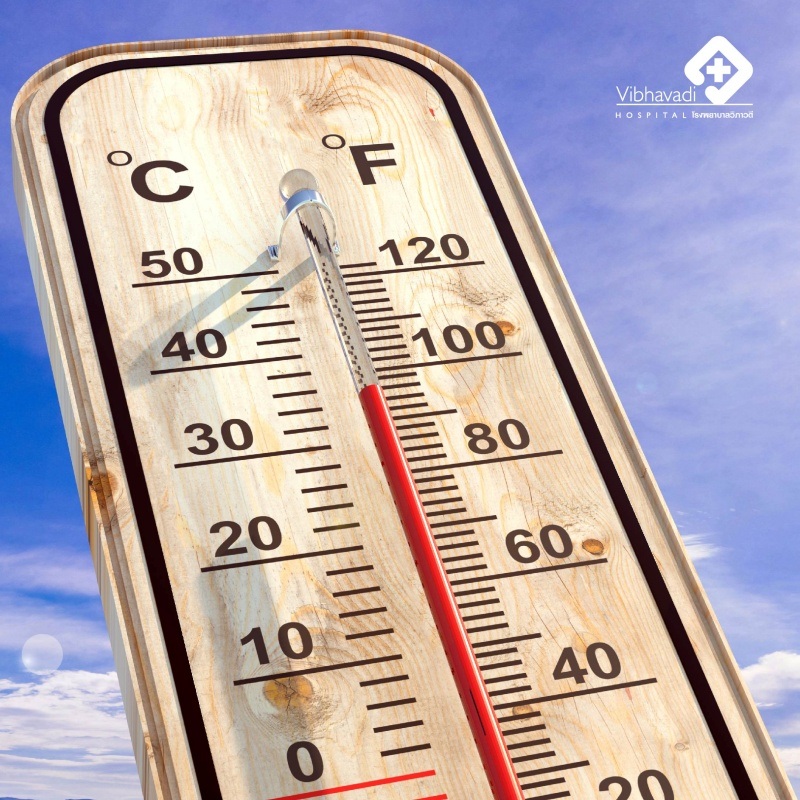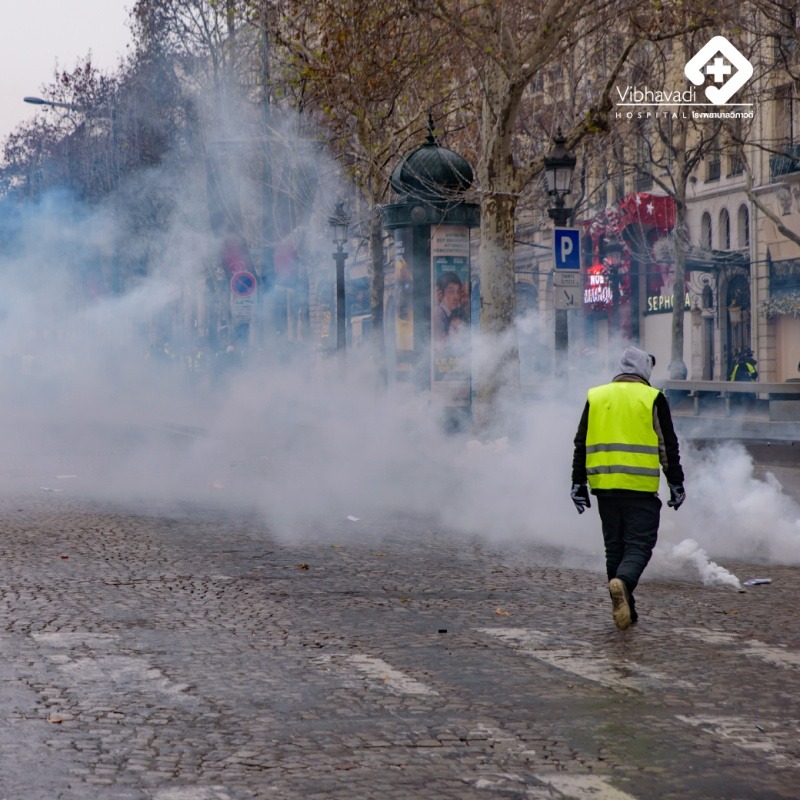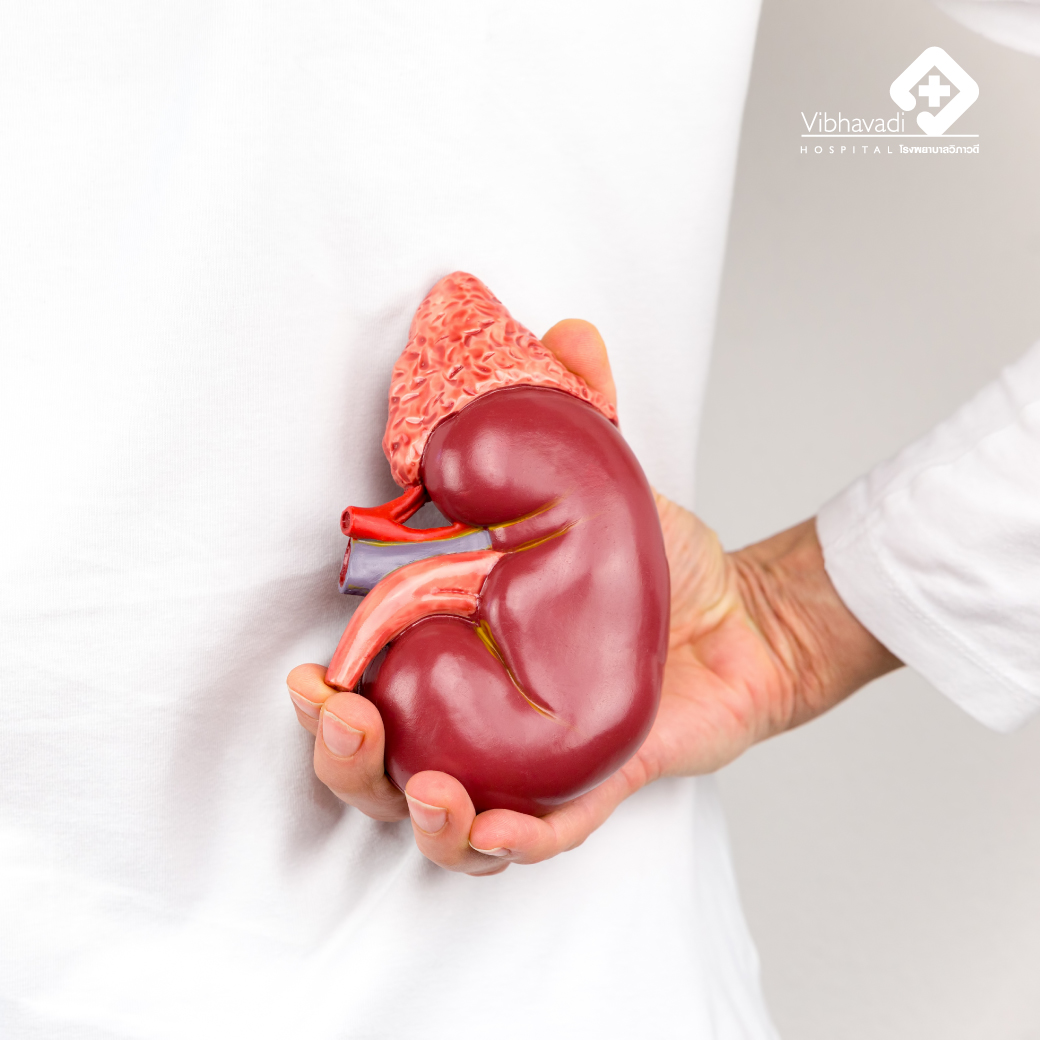RSV
The Respiratory Syncytial Virus (RSV) is a cause of respiratory infection in children under 2 years old and adults, often occurring in the winter or late rainy to early cold season in Thailand. It can be transmitted through secretions such as mucus. Infections may recur because there are multiple strains. Initial symptoms are similar to a common cold but can develop into bronchiolitis, pneumonia, or pneumonitis, causing difficulty in breathing. RSV infection may increase the risk of developing asthma up to 10 times as the child grows, and may lead to recurrent bronchiolitis once healed. It is the most common disease found in lower respiratory tract infections in children under 5 years old.
Patients at risk for severe disease include:
- Preterm infants, those with low birth weight, or those with low immunity, especially children with congenital heart disease.
- Those with poor disease resistance such as the elderly, people with chronic diseases, patients with respiratory and chronic heart diseases, as well as children under 2 years old.
Treatment: Currently, there is no direct treatment for the Respiratory Syncytial Virus (RSV). Supportive treatments based on symptoms include fever-reducing medications, cough medicine, bronchodilators, and in some cases, oxygen may be required. If there is excessive phlegm, lung percussion and suction might be needed. Anti-inflammatory leukotrienes in non-steroidal oral forms can help reduce the severity of coughing and breathlessness.
Prevention:
- No vaccine is available.
- Avoid taking children to crowded places.
- Keep children away from those with a cold.
- For children in air-conditioned rooms or in cold weather, make sure they wear thick, warm clothing.
- Wash children's hands frequently, as handwashing can eliminate over 80% of all types of germs on the hands.
- If there is a sick child at home or at daycare, separate the sick child from healthy ones and use separate utensils for the ill child.
- Prevent respiratory illnesses in children by encouraging breastfeeding, as children will receive immunity from their mothers through the milk, making them less prone to illness.
By Dr. Pranee Sitaposa, Pediatric Infectious Disease Specialist, Vibhavadi Hospital.















